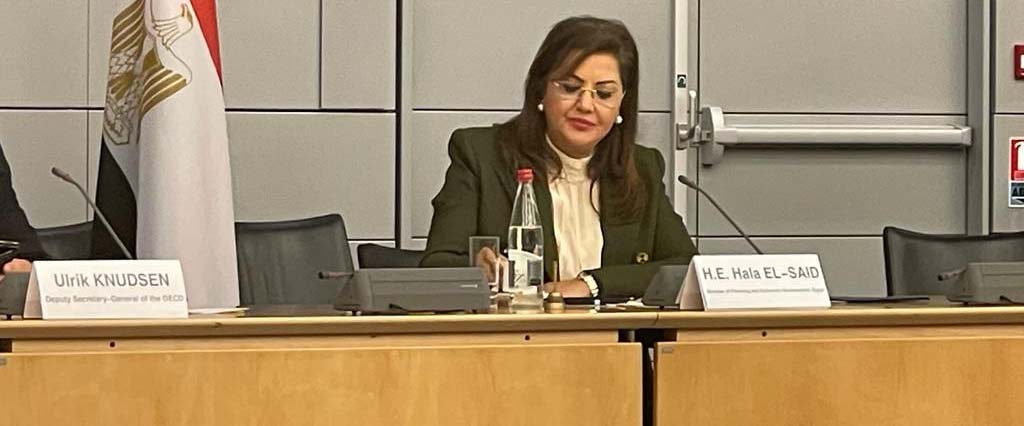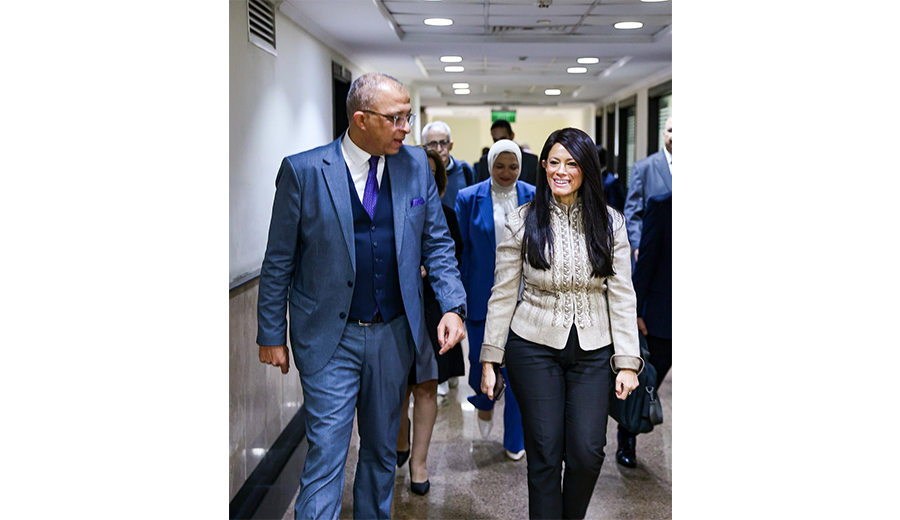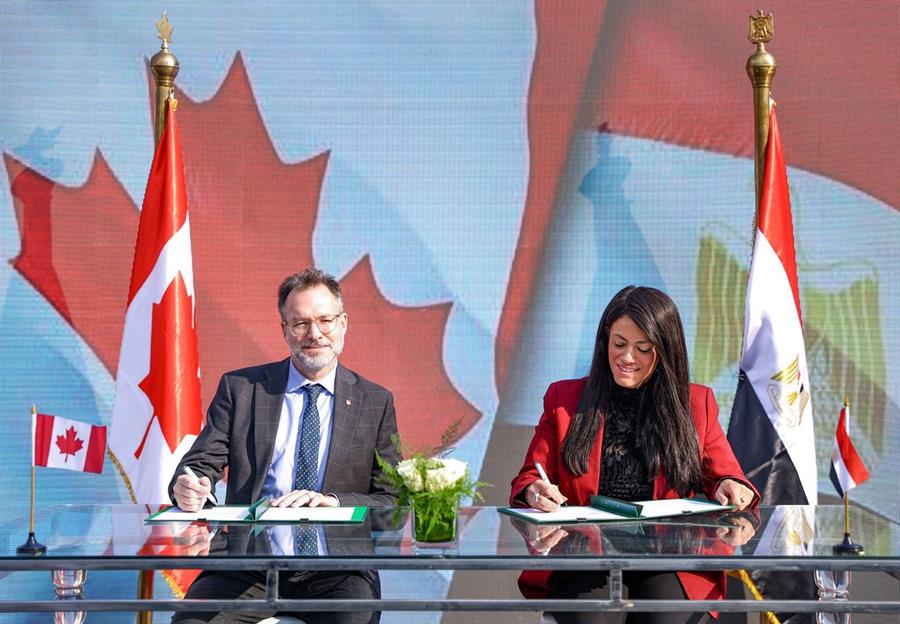Egypt signs MoU for the country program with the Organization for Economic Cooperation and Development (OECD) in France

27 October 2021
The country program allows Egypt to benefit from technical support in all fields: Says Hala El-Said
Cairo - October 27, 2021
Dr. Hala El-Said, Minister of Planning and Economic Development, said that relations between the Arab Republic of Egypt and the Organization for Economic Cooperation and Development (OECD) have expanded and deepened over the past years.
El-Said highlighted that Egypt was one of the first participants and supporters to launch the organization’s initiative for MENA on governance and competitiveness for development in 2005.
El-Said added that Egypt assumed the co-chairmanship of the initiative of the Organization for Economic Cooperation and Development in the Middle East and North Africa, from 2007-2009.
This came after Prime Minister Mostafa Madbouly signed a memorandum of understanding (MoU) on the country program between the Arab Republic of Egypt and the organization, during his visit and members of the Egyptian government for France.
El-Said pointed out that in 2014, the Organization for Economic Cooperation and Development developed country programs as a new tool to support a limited number of emerging economies that achieved a degree of economic reform in completing their reforms and strengthening public policies.
El-Said explained that the objectives of the country program are to assist the selected countries in adopting the standards of the Organization for Economic Cooperation and Development as a tool for evaluating reform policies and to promote a common understanding of the important political challenges facing society.
Regarding the advantages of preparing the country program, El-Said referred to the availability of many advantages after the preparation of the program represented in facilitating the process of joint coordination between Egypt and the organization by creating an institutional framework.
“The program also allows Egypt to periodically follow up the progress of all ongoing projects”. She said
El-Said added that preparing the program facilitates Egypt's participation in the selected OECD activities, as well as preparing joint studies and peer reviews that help follow up and evaluate the structural reform agenda.
El-Said noted that the preparation of the program allows Egypt to benefit from technical support in various fields, which helps improve Egypt's position in various economic, social, and environmental indicators.
On the content of the country program, El-Said revealed that the program relies on joint action in five areas, the first of which is economic stability and support for structural reform.
El-Said added that the second pillar is related to technology, science, and innovation.
“Cooperation with the organization in this pillar aims to support and strengthen the digital economy in Egypt to provide decent job opportunities in this field and improve the standard of living of citizens in line with Egypt's Vision 2030,” El-Said noted.
On the third pillar, El-Said explained that it is related to public governance and combating corruption.
The third pillar aims to support and strengthen governance frameworks to ensure equal access to justice and gender equality as well as spreading the principles of transparency and good governance.
Concerning the fourth pillar, El-Said indicated that it is related to statistics and follow-up and aims to develop the quality of data and statistics and improve data collection methods using the latest technological means.
El-Said said that the fifth pillar will be about cooperation in the fields of sustainable development and supporting Egypt's march in achieving Egypt's Vision 2030 with its economic, social, and environmental dimensions.









